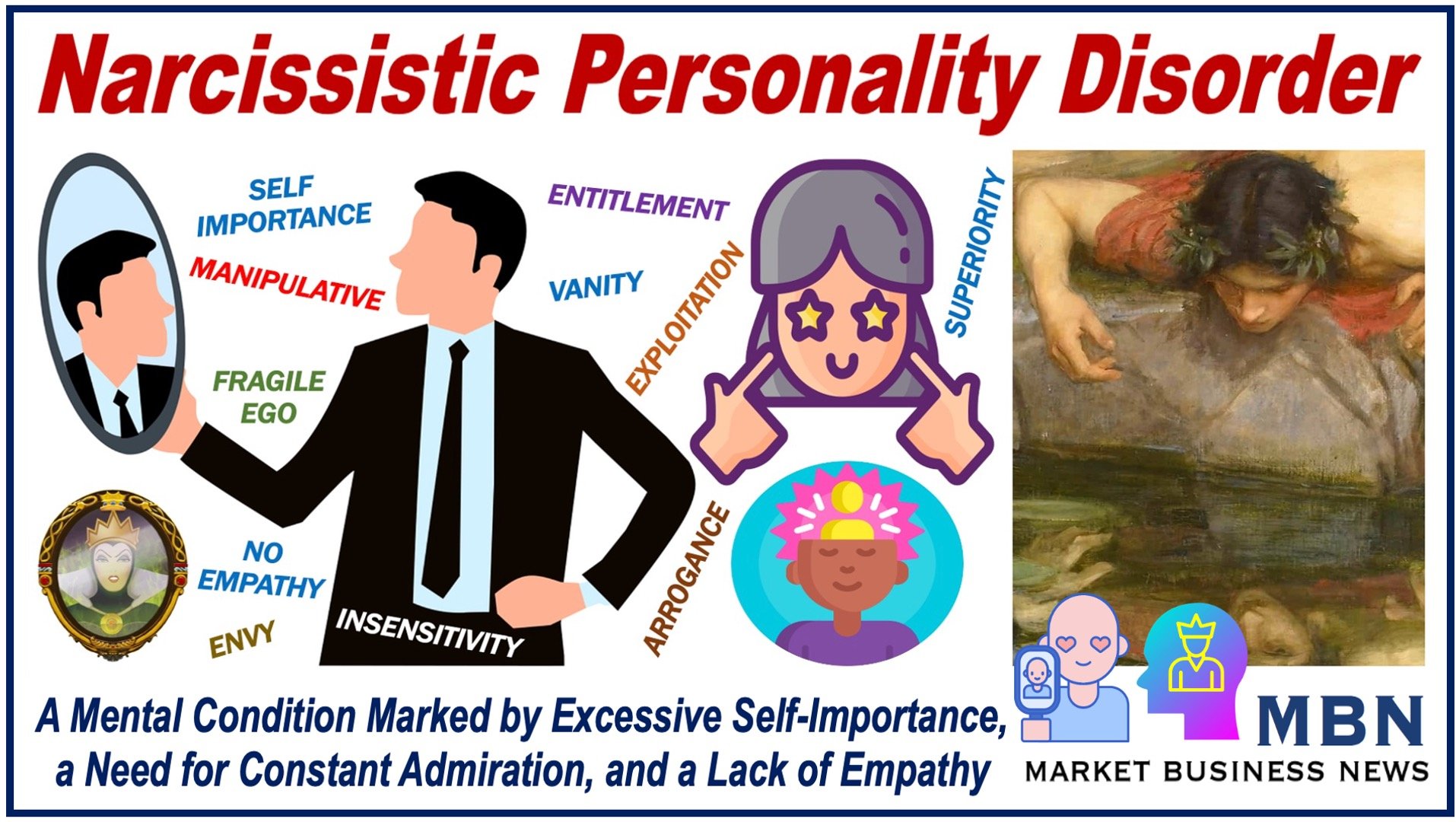Employers may be hiring narcissists without realizing it through their choice of words in job ads, a team of researchers reports.
Jonathan Gay from the University of Mississippi, Scott Jackson from the University of South Carolina, and Nicholas Sybert from the University of Maryland, all in the United States, carried out a new study on corporate recruitment language.
They wrote about their study and findings in the academic, peer-reviewed journal Management Science (citation below).
Employers who use terms like “ambitious,” “results-oriented,” and “persuasive” in job ads are more likely to attract narcissistic candidates, who, according to research, are more likely to engage in unethical behavior to achieve their goals or produce results.
Jonathan Gay, assistant professor of accountancy at the University of Mississippi, said:
“That’s what you would expect a narcissist to do – be willing to bend the rules, at least for themselves. And it starts with your job posting. Who are you attracting with your job postings?”
Narcissistic Personality Disorder
Somebody with a narcissistic personality disorder has an unreasonably high sense of self-importance. It is a mental health disorder. We often refer to such people as “narcissists.”
Apart from having an inflated sense of their own importance, they also have a constant need for attention and admiration and lack empathy.
According to the Mayo Clinic:
“They (narcissists) need and seek too much attention and want people to admire them. People with this disorder may lack the ability to understand or care about the feelings of others. But behind this mask of extreme confidence, they are not sure of their self-worth and are easily upset by the slightest criticism.”
“A narcissistic personality disorder causes problems in many areas of life, such as relationships, work, school, or financial matters.”
Recruiting Narcissists – Drawbacks and Risks
In an NBC News article, Remy Melina quotes a study that showed that narcissists are poor leaders. Even though they think they are ideal for leadership, a study showed that their obsession with themselves undermines their performance, especially in teamwork situations.
Melina quotes a team of researchers from the University of Amsterdam, who said:
“Although narcissists have leadership-related qualities, such as confidence, authority and high self-esteem, their self-centeredness ultimately prevents them from partaking in the creative exchange of information and ideas, which is crucial in group decision-making situations.”

Accounting – Fraud, Earnings Management, & Manipulation
Narcissists who work in businesses, especially accounting firms, are more likely to commit fraud or engage in earnings management or manipulation.
Fraud, which occurs when somebody uses dishonesty, deception, or tricks to gain money or property, is illegal. We refer to the person as a fraudster and their behavior or activity as fraudulent (adjective).
If you bend the rules to make your company appear to perform better than it actually is, you are engaging in “earnings management.” Often, this type of activity may not be illegal, but most of us see it as dishonest.
If somebody alters financial reports to present a distorted picture of their business’s or employer’s financial performance or health, they have engaged in “earnings manipulation.”
Prof. Scott Jackson said:
“Narcissism, for whatever reason, has proven to be the dominant personality trait that is associated with earnings management, fraud and manipulation.”
“A narcissist would be more likely to get entangled in serious accounting infractions than someone who doesn’t have that personality trait.”
Outside of Accounting
In some non-accounting departments, such as sales, having narcissists may not necessarily be a bad thing – it may even be an asset.
Prof. Gay explained:
“If you want salesmen that are going to go be innovative and sell a bunch of your goods, you may want a narcissist for that. It’s been shown that executives are typically high in narcissism.”
About the Study
In the study, the researchers asked 248 volunteers to look at some job ads and select those they found most attractive.
They also took the Narcissistic Personality Inventory-16 test – a widely used non-clinical test.
The researchers then identified the participants with higher narcissism scores and analyzed the job postings they selected, focusing on keywords and phrases that might have attracted them.
Although none of the participants were likely to have had a clinical narcissistic personality disorder, the test showed that those with higher scores had an elevated narcissistic tendency, the researchers said.
Prof Gay said:
“All three of us (the researchers) are accounting professors, but we also recognize that this has broader implications throughout other organizations. We thought that people higher in narcissism are going to be attracted to these terms because, theoretically, it matches their personality.”
“You can tie these terms to kind of exactly [sic] what makes them higher in narcissism.”
Context Matters
In many contexts, words and phrases that attract narcissists may seem common – such as “ambitious,” “creative,” and “thinking outside the box.” The researchers point out that it is important to understand those terms in the context of the job posting.
Prof. Jackson said:
“It would be desirable if accountants report what really happened. If you’re results-oriented in an accounting setting, you might doctor numbers so that the numbers represent something that didn’t happen but is desirable to report.”
“Calling someone a ‘creative accountant’ is kind of a euphemism for someone who tells accounting fibs. When you see a creative accountant, that wouldn’t be a compliment. That would basically say this person is willing to distort numbers in order to report what they want to see instead of what’s actually there.”
Whether you want to attract narcissists depends on your company’s needs. Narcissism is an undesirable trait for accounting jobs but may be an asset in some sales positions. As an employer or recruiter, it is important that you are aware that the words you use in the posting matter.
Prof. Gay said:
“So, if you want somebody who is going to be ambitious and self-reliant and maybe a little narcissistic, then include this language.”
“But if you want somebody that’s going to report the most accurate representation of your financial statements, not the most favorable representation, then you might want to be cautious about using some of these rule-bender terms in your job listings.”
Citation
Jonathan Gay, Scott B. Jackson, Nicholas Seybert (2024). Seductive Language for Narcissists in Job Postings. Management Science 0(0). https://doi.org/10.1287/mnsc.2024.05254

